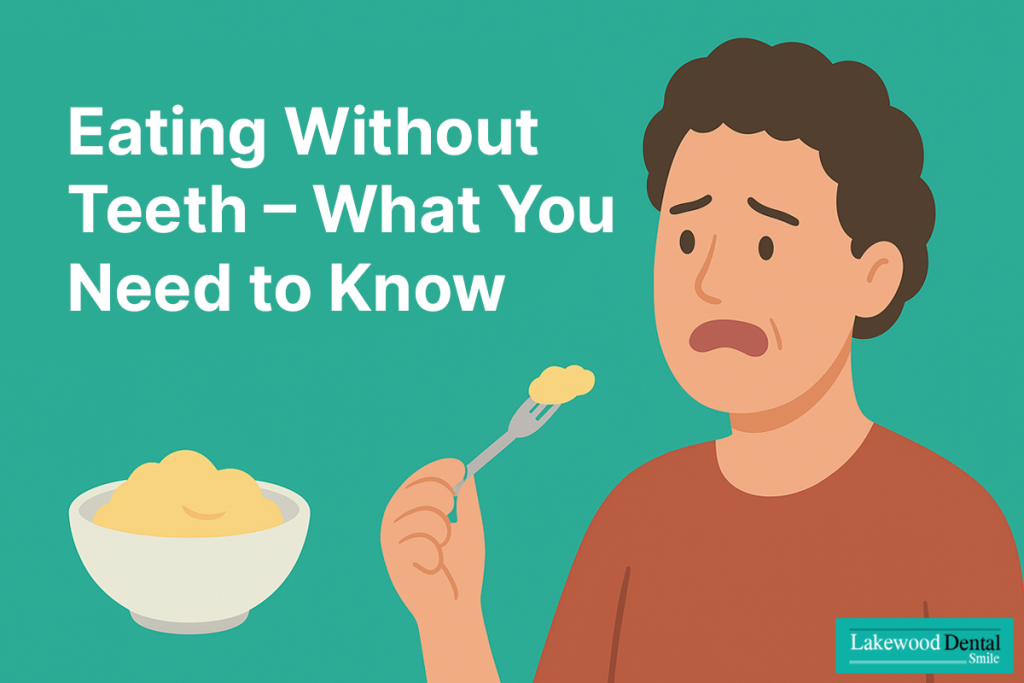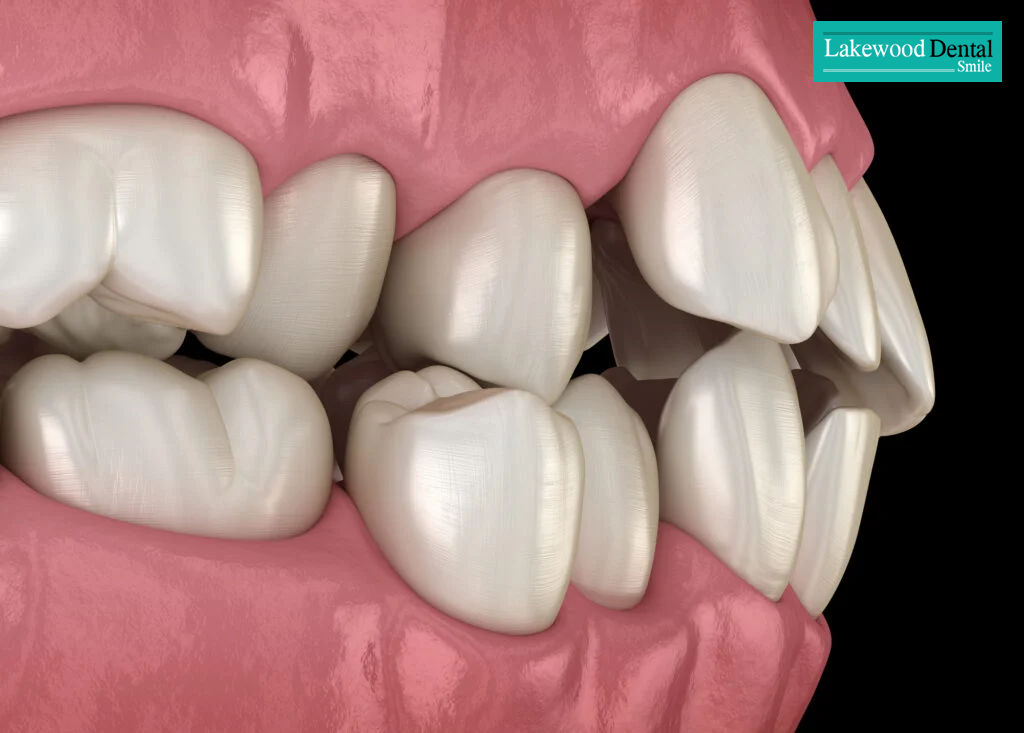
Eating Without Teeth is not just an inconvenience—it can have serious long-term consequences for your oral and overall health. Even if it seems easier over time, your body is paying a hidden price. Teeth play a crucial role in chewing, maintaining jaw strength, proper digestion, and overall nutrition. Losing teeth affects more than just your smile—it can influence energy levels, confidence, and social interactions. Understanding the impact of eating without teeth is essential to prevent serious health problems.
Understanding the risks of eating without teeth also highlights why early tooth replacement is crucial for long-term nutrition and oral health.
Here’s what you need to know:
Impact on Gums and Jaw Health
Chewing without teeth forces your gums and jaws to work much harder to break down food. This can lead to soreness, irritation, and even gum infections if not monitored closely. Over time, the strain may contribute to temporomandibular joint (TMJ) disorders, causing jaw pain, clicking, and difficulty opening your mouth fully.
Your jawbone relies on stimulation from teeth or dentures to maintain strength. Without it, the bone gradually shrinks and weakens, increasing the risk of fractures or collapse of facial structure. Studies show that individuals who do not replace missing teeth can lose up to 25% of their jawbone volume within the first year. For example, one patient who avoided implants for several years developed severe jaw shrinkage, making later restorative treatment more complex and costly.
This is one of the biggest concerns with eating without teeth, because missing stimulation accelerates jawbone loss and facial collapse.
Tip: Using a temporary denture or dental implant can help provide necessary jawbone stimulation while restoring chewing function.
Digestive and Nutritional Problems
Chewing is the first step in digestion and is critical for proper nutrient absorption. When you eat without teeth:
- Food isn’t broken down adequately, making it harder for your body to absorb vitamins, minerals, and proteins.
- Large food fragments can cause indigestion, bloating, and bacterial overgrowth in the gut.
- Chewing signals your stomach and pancreas to release digestive enzymes and acids. Without that signal, digestion becomes inefficient.
A long-term “no-chew” diet restricts your food options and may lead to nutrient deficiencies, weight loss, or other systemic health issues.
Example: A patient who avoided replacing missing teeth reported fatigue and digestive discomfort, which resolved after receiving implants that restored chewing ability.
Practical Tip: Softer nutrient-dense foods like well-cooked legumes, smoothies, and pureed fruits can help maintain calorie intake. Chewing slowly and drinking water with meals further aids digestion.
Risks of Prolonged Tooth Loss
Beyond digestion, prolonged tooth loss affects appearance, speech, and confidence. Missing teeth can cause:
- Sunken cheeks and premature facial aging
- Difficulty pronouncing words clearly
- Lower self-esteem and social anxiety
Missing teeth also impact social life—people may avoid gatherings, shy away from photos, or feel less confident at work or school. Dental implants or dentures can prevent these issues, maintaining facial structure, improving speech, and restoring confidence.
Practical Solutions for Eating Without Teeth
If you cannot replace missing teeth immediately due to cost or other reasons, temporary measures can help:
- Stick to soft foods like mashed vegetables, yogurt, or soups.
- Cut food into smaller pieces to reduce gum strain.
- Avoid very hard or sticky foods that can injure your gums.
- Maintain excellent oral hygiene to prevent infections.
Tip: Even temporary dentures or partial implants can significantly improve chewing, comfort, and nutrition.
Long-Term Options
Replacing missing teeth is the healthiest long-term strategy. Options include:
- Dentures: Removable, affordable, and restore basic chewing function. May require periodic adjustments
- Dental Implants: Permanent, natural-feeling solution that stimulates the jawbone and supports facial structure.
- Implant-Supported Dentures: Combines the stability of implants with the convenience of dentures, offering improved chewing efficiency and facial support.
At Lakewood Dental Smile, our specialists design personalized treatment plans to restore your ability to eat, speak, and live comfortably. Consulting early ensures the best outcomes for both health and confidence.
Takeaway
Ultimately, replacing missing teeth is not just about restoring your smile—it’s about protecting oral health, maintaining proper nutrition, and enhancing quality of life. Whether through dentures, dental implants, or implant-supported solutions, taking action now safeguards your health and confidence for years to come.


